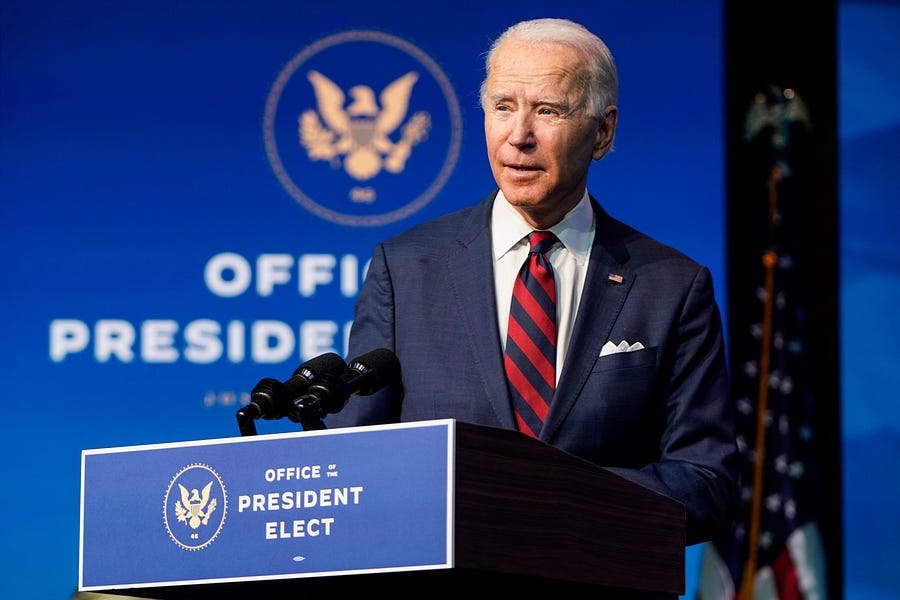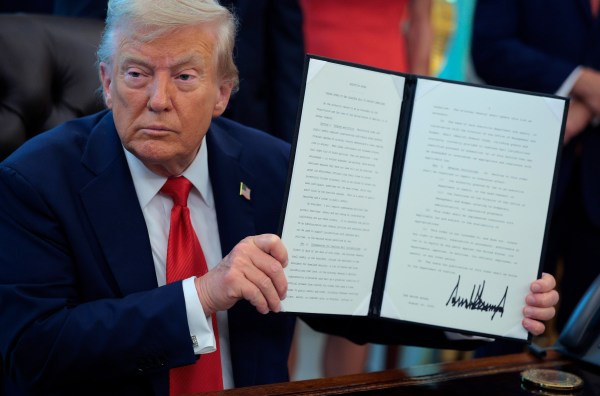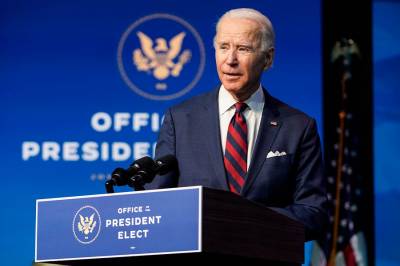The gentle reader might be puzzled or even put off by the title of these notes. After all, Russia featured prominently in the national security briefings Joe Biden received as vice president. Besides, I have it on very good authority that he made at least two unpublicized trips to Moscow during the first Obama presidency.
Yet discover Russia Joe Biden will. Not merely because it is a Russia different from the one of the 2009 “reset” or of the “collusion” mythology. It is now his Russia to deal with, his to “manage.” And it is in this new job of Russia’s manager that he might profit from a couple of friendly reminders.
First, he should beware of the mysterious pull to befriend or even change Russia, whether Soviet or post-Soviet, by proffers of goodwill, disarming candor, investments and, most of all, by putting Moscow at ease by explaining, in Ronald Reagan’s plans for Gorbachev, “what makes America tick.” Such efforts have become a quasi-religious rite of passage for the White House occupants.
Franklin Roosevelt, who extended diplomatic recognition to the Soviet Union in 1933, was confident that his charm would work on “Uncle Joe” Stalin in Tehran and Yalta. Dwight Eisenhower had Nikita Khrushchev over for dinner at the White House in 1959. John Kennedy attempted to impress Khrushchev in his first year as president, and Lyndon Johnson talked to Premier Nikolai Kosygin in Glassboro in 1967. Richard Nixon went to Moscow to launch the détente, Jimmy Carter kissed Leonid Brezhnev in Vienna in 1979, Ronald Reagan met Mikhail Gorbachev seven months after Gorbachev had become general secretary, and George H.W. Bush 41 saw Gorbachev on a Soviet cruiser off the coast of Malta 10 months after the inauguration. Bill Clinton practiced “tough love” with his “friend Boris” Yeltsin, George W. Bush met Vladimir Putin five months into his own first term, got “a sense of [Putin’s] soul,” found him “straightforward and trustworthy,” and had him over to the ranch in Texas that same year, and to the Bushes’ country estate in Kennebunkport in July 2007.
Barack Obama launched the “reset” less than two months into his first term, went to Russia with his wife and daughters four months later, and, over a caviar breakfast at Putin’s Novo-Ogaryovo dacha, praised Putin’s “extraordinary work on behalf of the Russian people.” Donald Trump parlayed with Putin “on the margins” of a G20 summit six months after his inauguration, and, sitting next to Putin at a joint press conference, opened up by saying that it was “an honor” to be with him, and reached out for Putin’s hand to shake. (Landing smack in the Cold War, Harry Truman was the only exception to this rule.)
Biden is almost certain to succumb to the temptation as well. Well, good luck to him—so long as he bears in mind another historical regularity. Barring international crises or invasions, countries’ foreign policies are made from inside out, as it were, by their leaders’ ideologies—that is, their beliefs in how their countries should live and what they should aspire to—as well as the domestic political imperatives of their regimes. (In democracies, public opinion also plays a role, although rarely and with respect only to acutely pressing issues.)
Attempting to change countries’ behavior from the outside in by making the context in which they operate more welcoming—whether by “normalizing” relations, including diplomatic recognition, professing “respect” for their “national interests,” signing arms control and nuclear non-proliferation treaties, ending or easing previously imposed sanctions, and, of course, fawning over the leaders—usually fails.
The Soviet and post-Soviet Russias are Exhibit A. Roosevelt’s flirtation with Stalin did nothing to safeguard the independence of Eastern and Central European nations, or even soften the savagery of their “communization.” Khrushchev banged his shoe on the table (or by other accounts waved it in the air) at the U.N. General Assembly a year after dining with Eisenhower, and he placed missiles on Cuba 15 months after the session with Kennedy. The Johnson-Kosygin meeting failed to diminish the Soviet Union’s support for North Vietnam’s invasion of the South.The détente did not stop the Soviet Union’s military buildup, the efforts to undermine Western democracies or the economic and military assistance to pro-Soviet regimes in places like Angola, Ethiopia, and Mozambique. The Soviet Union invaded Afghanistan less than half-a-year after Carter and Brezhnev embraced before signing the SALT-II arms control agreement, and Putin attacked Georgia 13 months after Kennebunkport and annexed Crimea five years into the “reset.”
Of course, the failures of the outside-in approach are not limited to the Soviet Union or post-Soviet Russia. Obama’s sitting next to Raul Castro at a baseball game in Havana did not diminish Cuba’s zeal in constructing a police state in Venezuela, or prevent the outbreak of mysterious illnesses that afflicted staff in the newly opened U.S. Embassy. Known as Havana Syndrome and caused by radiation, including microwaves, the maladies, according to a recent New York Times report, are likely to have been the result of a “malicious attack” by the Cuban authorities.
Neither rushing several plane loads of cash from unfrozen accounts totaling $1.7 billion to Tehran in the wake of the Iran nuclear deal, nor Secretary John Kerry’s exertions in promoting Iran to European businesses did anything to vitiate Iran’s relentless subversion of Iraq and the killing of U.S. soldiers there, the vital support for the bestial Assad regime, or a proxy war in Yemen.
Perhaps the most conspicuous falsification of the outside-in hypothesis involves China. The People’s Republic was welcomed with open arms into the world economy, granted access to all key international financial institutions, accorded respect or even deference by the West. Yet at the height of its economic integration with capitalist democracies, China embarked on a vast military expansion, constructed seven islands in the South China Sea with 3,000 acres of air defense installations and anti-ship missiles, erected outposts in areas claimed by the Philippines and Vietnam, began making noises about absorbing Taiwan, provoked deadly clashes on its borders with India in the Himalayas, and cracked down in Hong Kong.
For better or for worse, foreign policies change when regimes do. Which is why Reagan, at the time almost alone among his national security team, called Gorbachev a “real thing” and went to a rapturous reception in Moscow in 1988. The connection between the domestic regime and its foreign policy was just as explicit under Yeltsin, who presided over the freest Russia in history save for the eight months between February and October 1917. Yeltsin made this interdependence explicit when he addressed the nation on December 29, 1991, four days before he abolished 70 years of state price controls. Together with the state-owned economy, Yeltsin said, Russia was ridding itself of “the militarization of our life,” and of the “constant preparation for war“ with the entire world. The Iron Curtain that had separated Russia from “the whole world” was no more.
Among hallmarks of a new Russian foreign policy were the treaty with an independent Ukraine, including the recognition of Ukrainian sovereignty over Crimea, an unhappy but mild reaction to the NATO expansion, and the eventual siding with the U.S. against Slobodan Milosevic’s Yugoslavia, which ended the rump Yugoslavia’s aggression in Kosovo.
The sharp change in Russia’s behavior, too, coincided with the regime’s alteration between 2012 and 2014. After presiding over a relatively “soft,” largely non-ideological, corrupt electoral authoritarianism, in his third term in office Putin opted for a far more repressive personalist rule with nationalist messianic overtones reminiscent of the Soviet propaganda. Russia again was a besieged fortress as the Putin began to shift the basis of his popularity (which is the same as the support for his regime) from economic progress and growth of incomes to what Lev Gudkov, the director of Russia’s only remaining independent polling firm the Levada Center, called “patriotic mobilization,” and a leading political sociologist, Igor Klyamkin, labeled “militarized patriotism in peacetime.”
In what must be a unique medical condition of a delayed panic attack, the NATO expansion was declared a mortal danger eight years after the Baltic states had been granted membership in the alliance. The war on Ukraine and the annexation of Crimea followed, along with a breakneck nuclear modernization, the intervention in the Syrian civil war, and the goading of the West, whether in the attempted assassination of a former British spy in or the interference in the U.S. presidential election.
Does this history suggest that U.S. presidents should not talk to Russian or other anti-Western authoritarians? Of course not. Just don’t expect to educate them, to “explain America” to them, or, least of all, change their deeply held beliefs and the objectives which these beliefs engender.
Nor does this account imply that the U.S. should wait for a regime change to moderate hostile policies. Just as revisionism or aggression becomes central to some regimes’ legitimation, the failures of such policies are bound to erode their domestic support. All four Russian revolutions of the last century and a half were precipitated by military defeats or setbacks: Alexander II’s “revolution from above,” including the abolition of the serfdom, followed the defeat in the 1853-1856 Crimean War; the revolutions of 1905 and 1917 were touched off by the defeat in the Russo-Japanese war and the losses in World War I, and ending the war in Afghanistan was a key element of Gorbachev’s perestroika.
Putin knows this history, and Xi Jinping is just as certain to be well familiar with its Chinese equivalents. They will proceed cautiously if they perceive the risks of a swift defeat to be real and formidable. Contributing to such perceptions by readying credible, quick, and robust responses—military, economic, and diplomatic—ought to be Joe Biden’s first priority in his discovery of Russia.






Please note that we at The Dispatch hold ourselves, our work, and our commenters to a higher standard than other places on the internet. We welcome comments that foster genuine debate or discussion—including comments critical of us or our work—but responses that include ad hominem attacks on fellow Dispatch members or are intended to stoke fear and anger may be moderated.
With your membership, you only have the ability to comment on The Morning Dispatch articles. Consider upgrading to join the conversation everywhere.